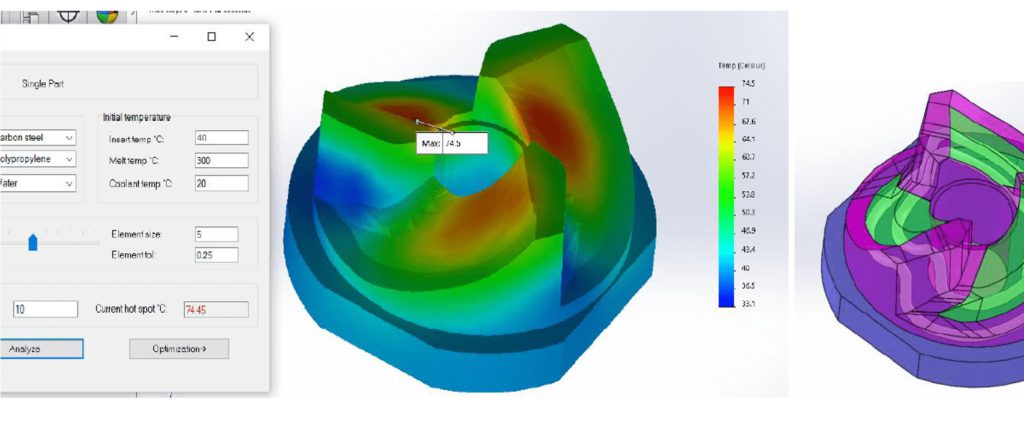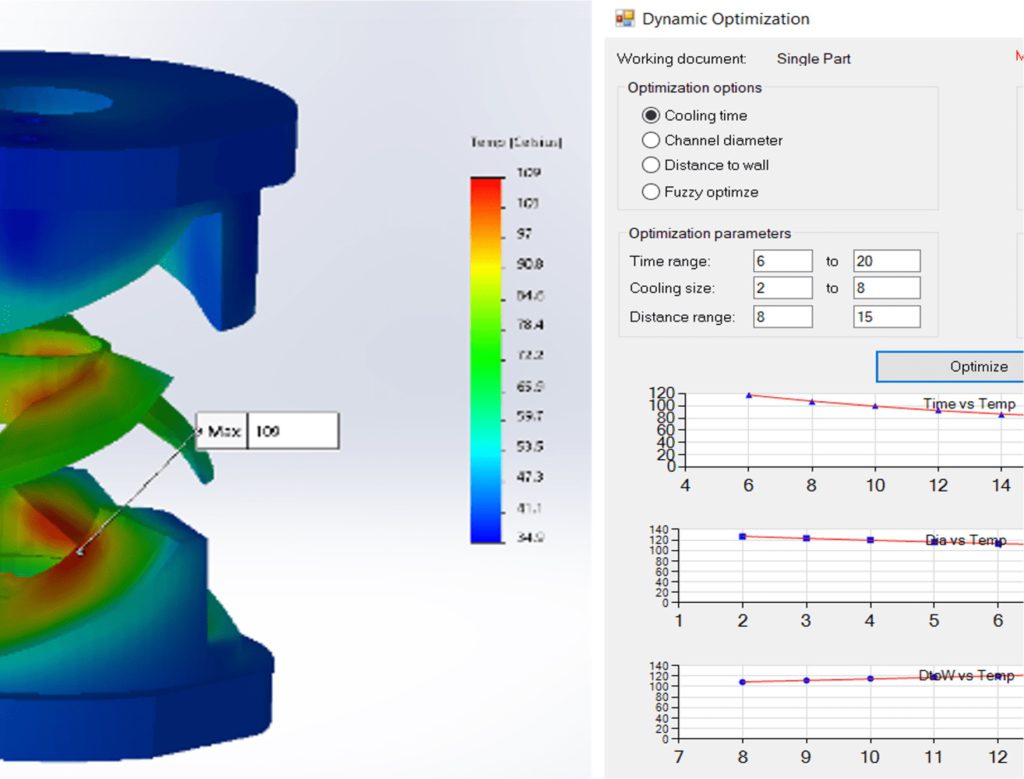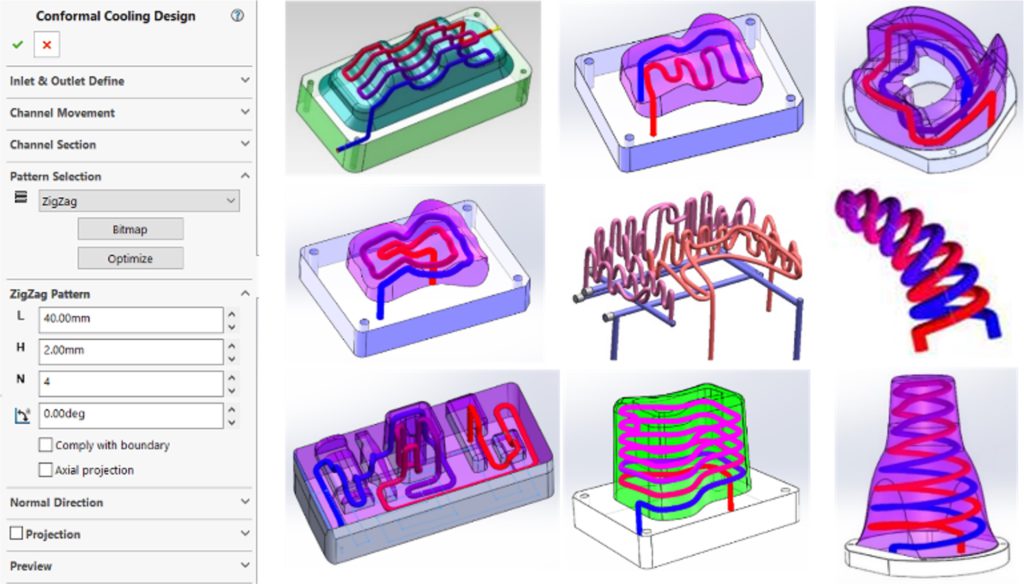Development and Optomisation of Conformal Cooling Channel with Dynamic Thermal Analysis
Key Information
AM Tech
Array Industry
Array Potential Applications
Design 3D printed conformal cooling channel
Collaborators
Namic @ NYP X Sunningdale Tech Problem Statement
Increasing industries have realized the benefits of conformal cooling, and more moulding inserts are leveraging on embedded conformal cooling design to be competitive. However, conformal cooling channels are currently manually designed. The design process is tough and time-consuming, and significant human empirical knowledge is required in conformal cooling design.
Objective
This project aims to develop a software product and solution for automatic design and optimization of conformal cooling channels, which incorporates dynamic thermal analysis and assessment in a single system.
Key Benefits/Outcomes
- The automated software could enhance manufacturing productivity by improving part quality, reducing design lead time and tooling verification time.
- The solution also minimizes the dependence on human knowledge capital, and solve the manpower intensive process in developing rapid tooling with conformal cooling.
- It allows user to design 3D printed conformal cooling channel more efficiently, at lower cost and shorter timelines.
- 3D printed conformal cooling could potentially reduce injection moulding cycle times between 30%-60% over conventional cooling system.



